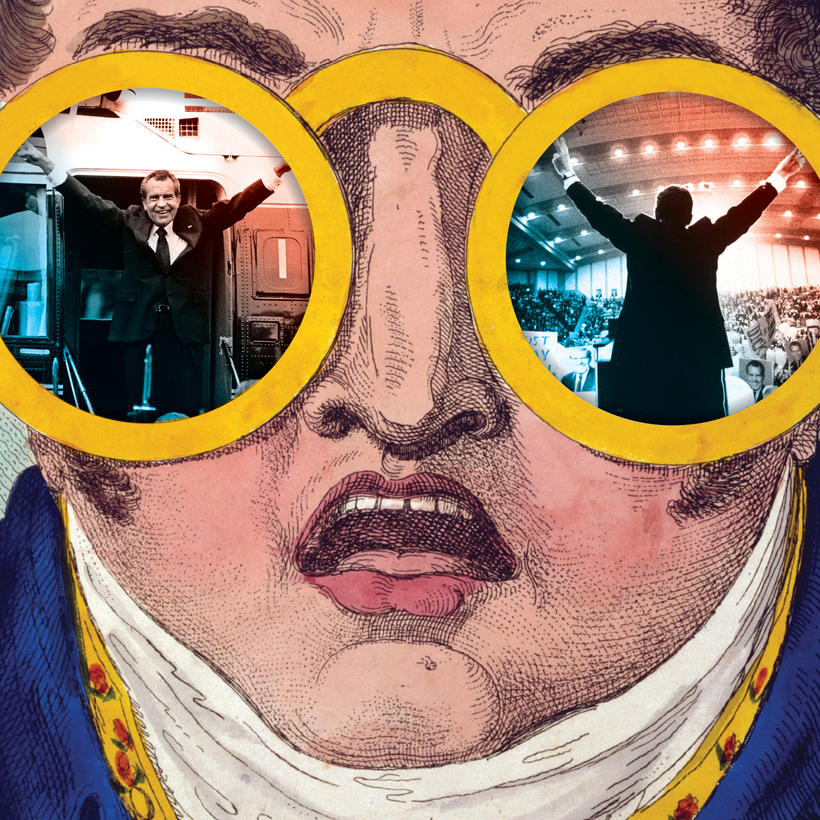Richard Nixon, for all his flaws, has his apologists. Personally, the accomplishment I admire is smaller than détente with the Soviet Union, recognizing China, or Title IX, but it’s not nothing. Nixon didn’t gain a pound while in office, even during the stress of the Watergate hearings and—get this—even though he didn’t stop drinking. (His secret: cottage cheese with pineapple.)
We know so much about Nixon, yet there’s no end to what we want to understand. And for good reason: we are living out his legacy, still. Some people argue that jazz isn’t entirely an American invention, but surely there is consensus that Richard Nixon is the jazz standard of American politics. Like “’Round Midnight,” his saga is so familiar and evocative that it inspires infinite riffs and fugues.


